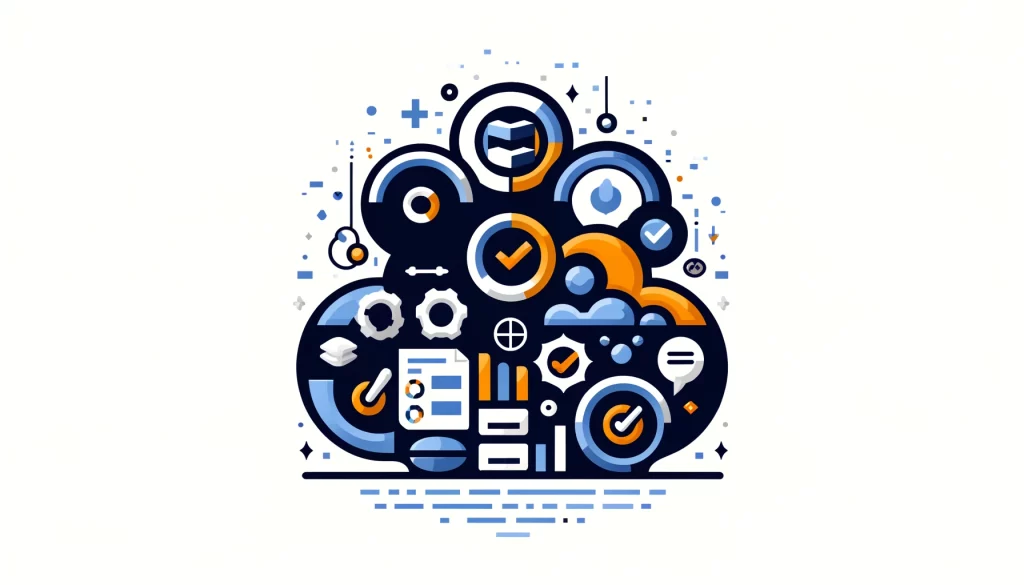
Data Standards

Introduction
In today’s data-driven world, organizations are constantly collecting, storing, and analyzing vast amounts of information. However, simply having access to data is not enough to drive business success. Companies should arrange their data, ensure it is uniform, and easily accessible to maximize its usefulness. This is where data standards come into play.
What are Data Standards?
Data standards define the rules for organizing, formatting, and handling data in a company. A standardized language and framework describe data elements, attributes, and relationships. This helps with communication and information exchange between different systems and applications.
Key components include:
- Data types: Defining the format and structure of individual data elements (e.g., text, numbers, dates)
- Identifiers: Unique codes or labels used to identify specific data elements or records
- Metadata: Descriptive information about the data itself (e.g., definitions, sources, ownership)
- Data models: High-level representations demonstrate the relationships and organization of data elements.
By establishing and adhering to data standards, organizations can improve data quality, reduce redundancy, and streamline data integration efforts.
Sources of Data and Data Standards
You can apply data standards to various types of data from different sources, including:
- Transactional data: Information generated from day-to-day business operations (e.g., sales, customer interactions)
- Master data: Core reference data that remains relatively stable over time (e.g., customer profiles, product catalogs)
- Analytical data: Aggregated or derived data used for reporting and decision-making (e.g., sales trends, customer segmentation)
- External data: Information obtained from third-party sources (e.g., market research, social media feeds)
Regardless of the data source, implementing data standards helps ensure consistency and interoperability across an organization’s data ecosystem.
Data Standards and Security
Organizations must protect their data to ensure the safety of sensitive information. By establishing clear guidelines for data access, usage, and protection, data standards help organizations:
- Enforce access controls: Defining who can view, modify, or delete specific data elements based on user roles and permissions
- Maintain data integrity: Ensuring that data remains accurate, complete, and consistent throughout its lifecycle
- Comply with regulations: Meeting legal and industry requirements for data privacy and protection (e.g., GDPR, HIPAA)
- Detect and prevent data breaches: Monitoring data usage patterns and identifying potential security threats
Example: A healthcare provider implements data standards that encrypt patient records and restrict access to authorized personnel only. This helps protect sensitive medical information from unauthorized disclosure and ensures compliance with HIPAA regulations.
Examples of Data Standards
Standards can be industry-specific or cross-functional, depending on the needs of the organization. Some common examples include:
- ISO 8601: An international standard for representing dates and times
- HL7: A set of standards for exchanging electronic health information between healthcare providers
- SWIFT: A messaging standard used by financial institutions for secure international transactions
- XBRL: An XML-based standard for reporting financial information
Implementing these standards helps organizations streamline data exchange and ensures interoperability with external partners and stakeholders.
For instance, a global store uses the GS1 standard to give each item in their inventory a special barcode. This allows the retailer to track products across their supply chain and share information seamlessly with suppliers and distributors.
How DataSunrise Supports
DataSunrise is a leading provider of data management solutions that help organizations implement and maintain robust data standards. With its exceptional and flexible tools for data security, audit rules, masking, and compliance, DataSunrise enables companies to:
- Define and enforce data access policies based on user roles and permissions
- Monitor data usage and detect potential security threats in real-time
- Mask sensitive data elements to protect privacy and comply with regulations
- Generate detailed audit trails of all data access and modification activities
Organizations can ensure that they consistently apply and enforce their data standards across their entire data ecosystem by leveraging DataSunrise’s powerful capabilities.
Conclusion
Data standards are the foundation for effective data management in today’s complex business environment. Companies can ensure the accuracy of their data by establishing clear rules on organizing and formatting the data. They can also make it easier to share data by doing this. Additionally, establishing rules on how to keep data safe can help protect important information from potential dangers.
Implementing data standards is a continuous process that needs commitment and collaboration from everyone in the organization. The benefits of improved decision-making, enhanced operational efficiency, and reduced compliance risk make the effort well worth it.
If you’re keen on learning how DataSunrise can help your business, we invite you to schedule a virtual demo with our team of experts. Discover how our amazing tools can improve your data management and help your business succeed.
